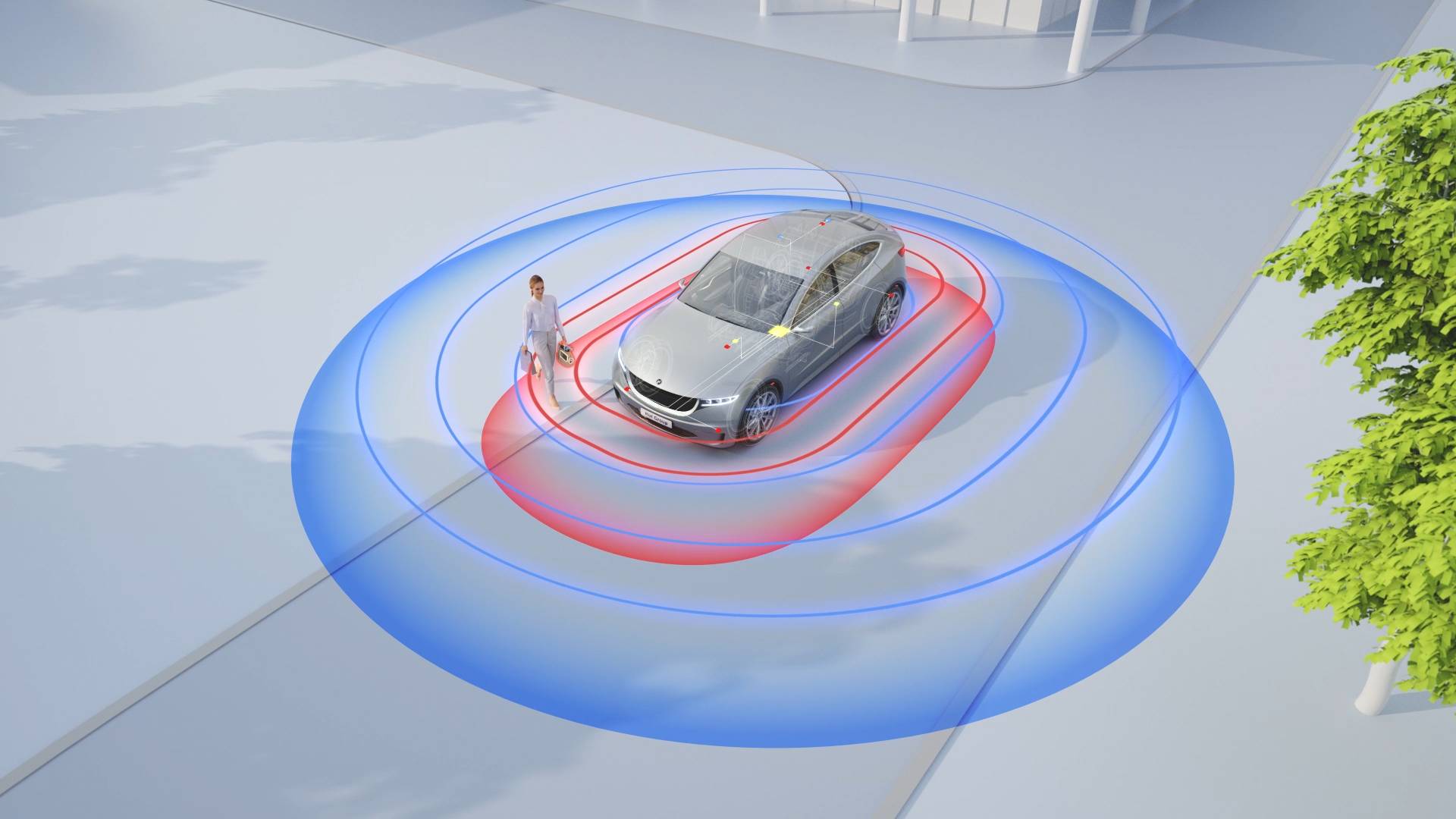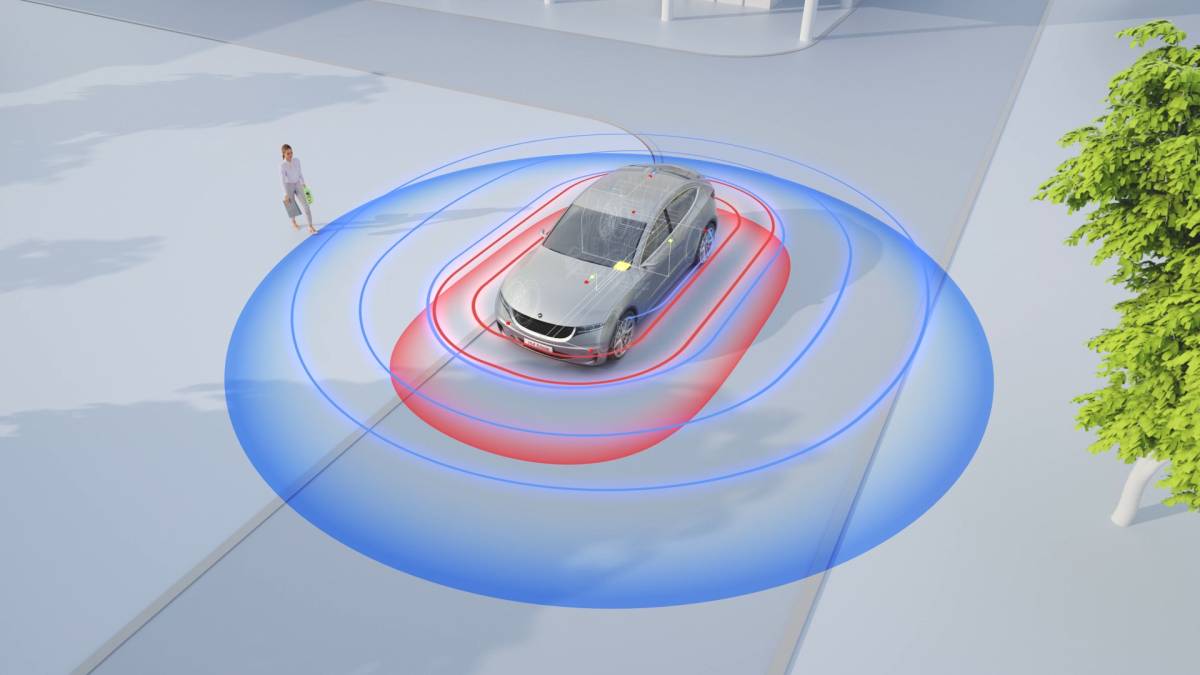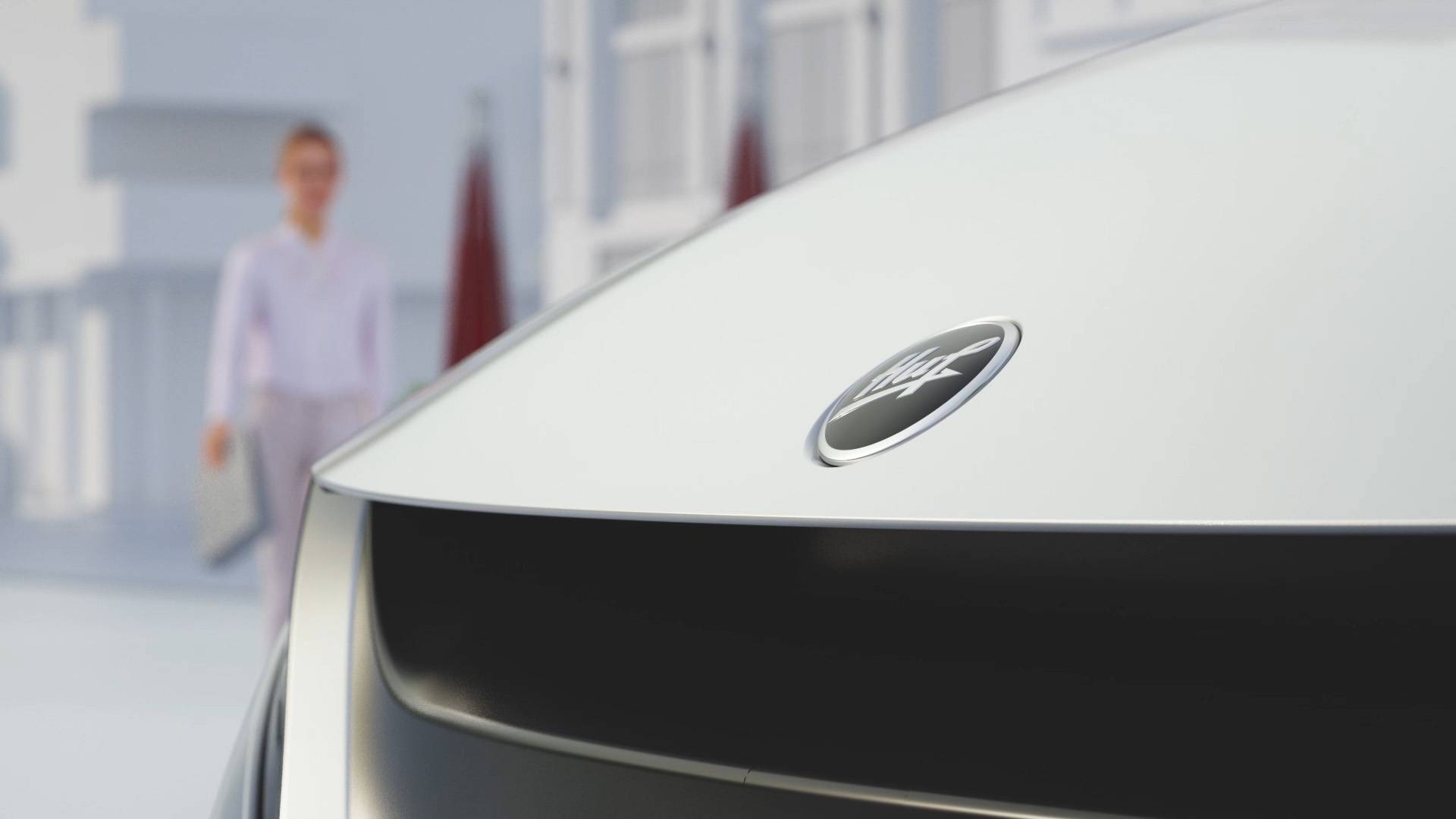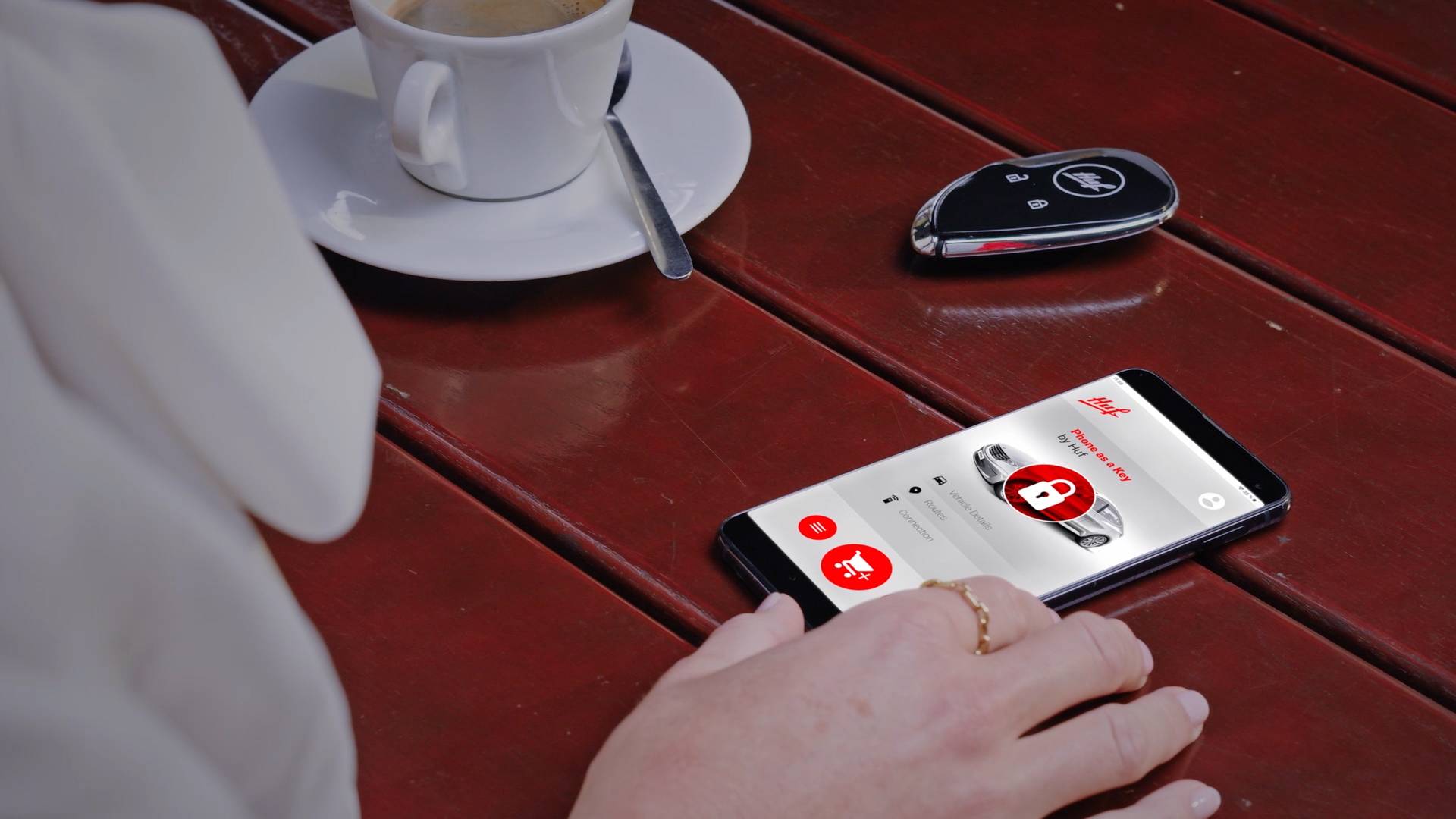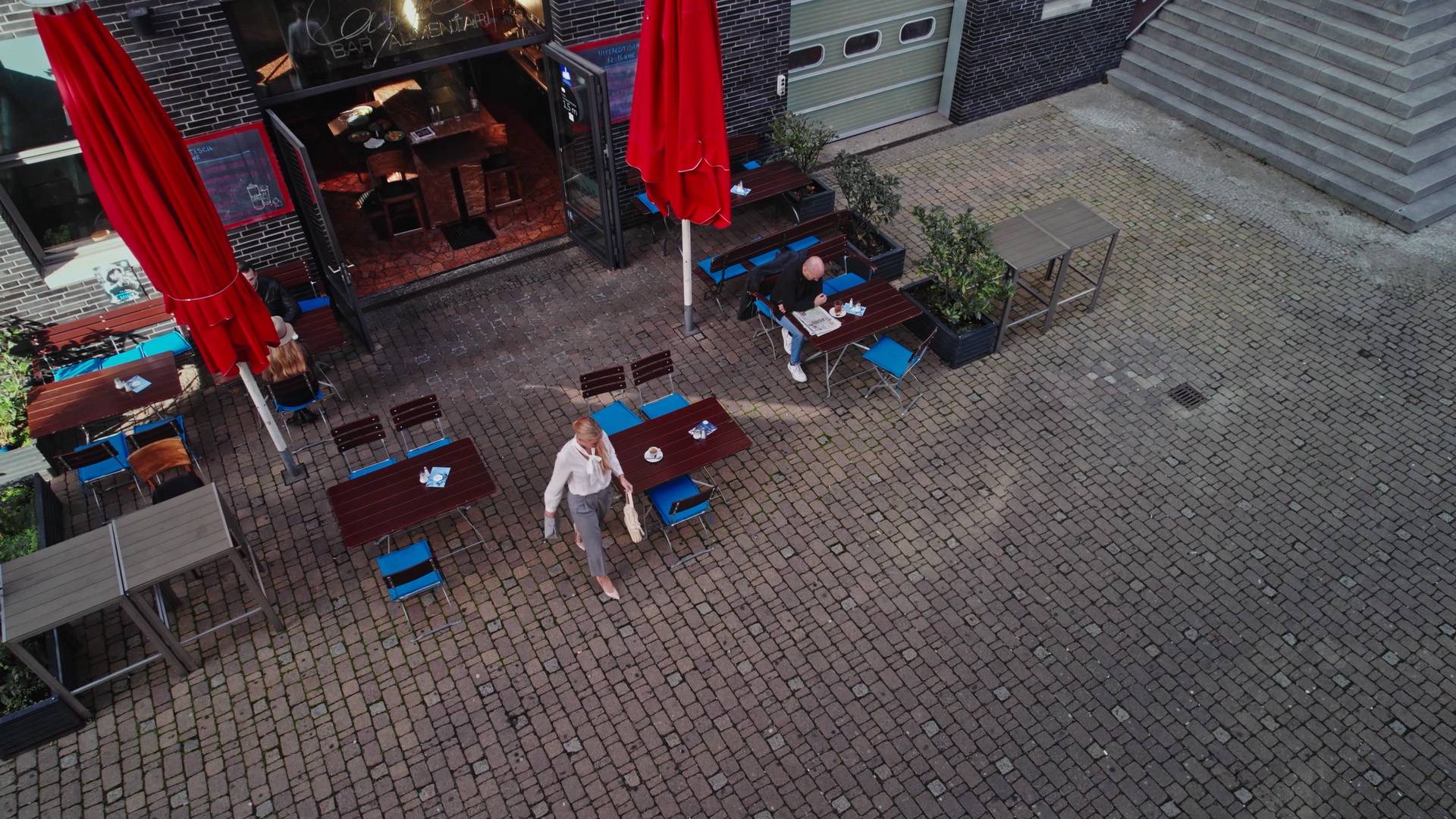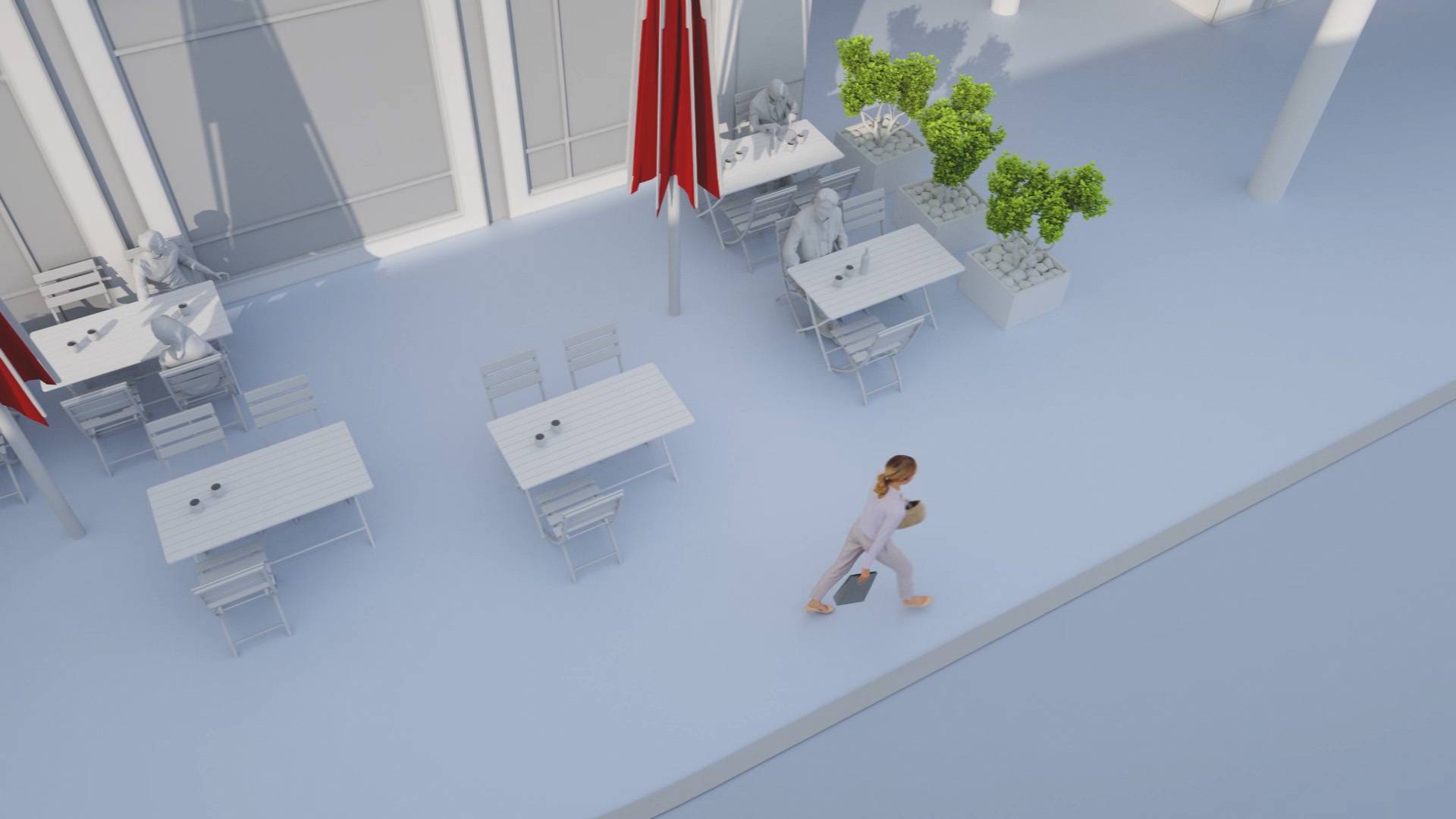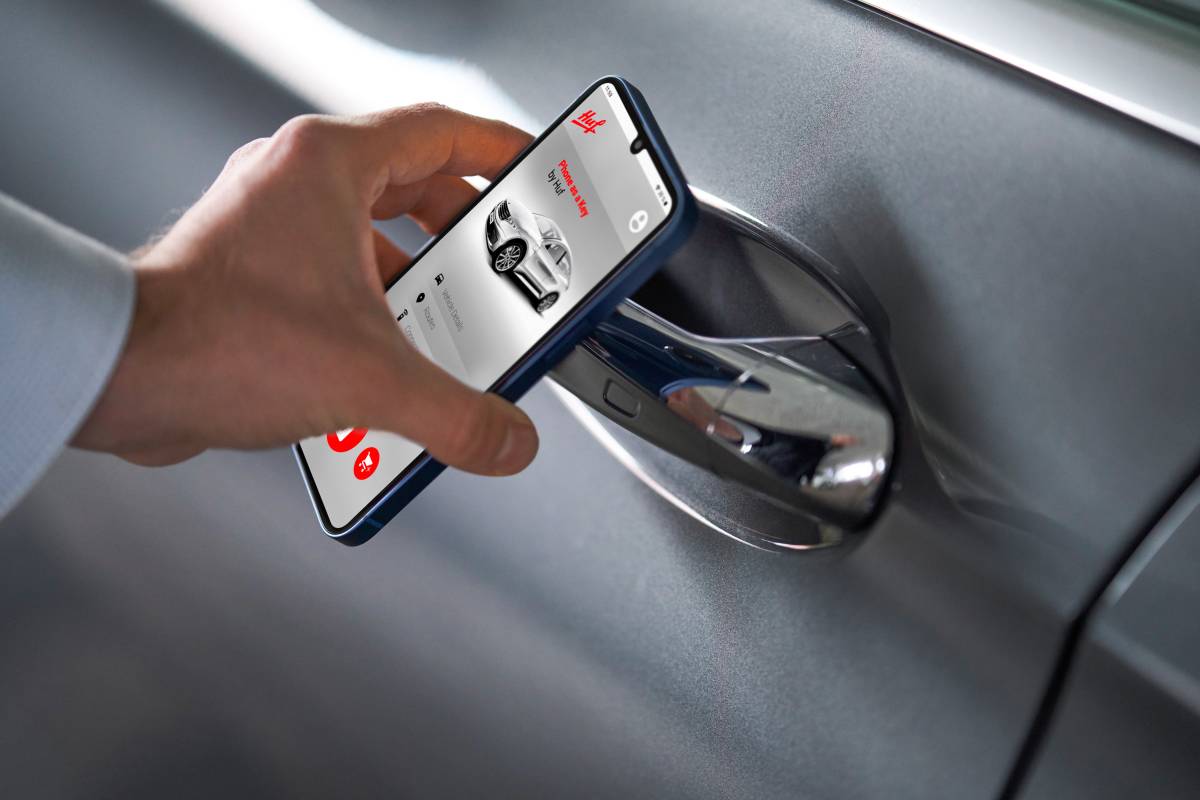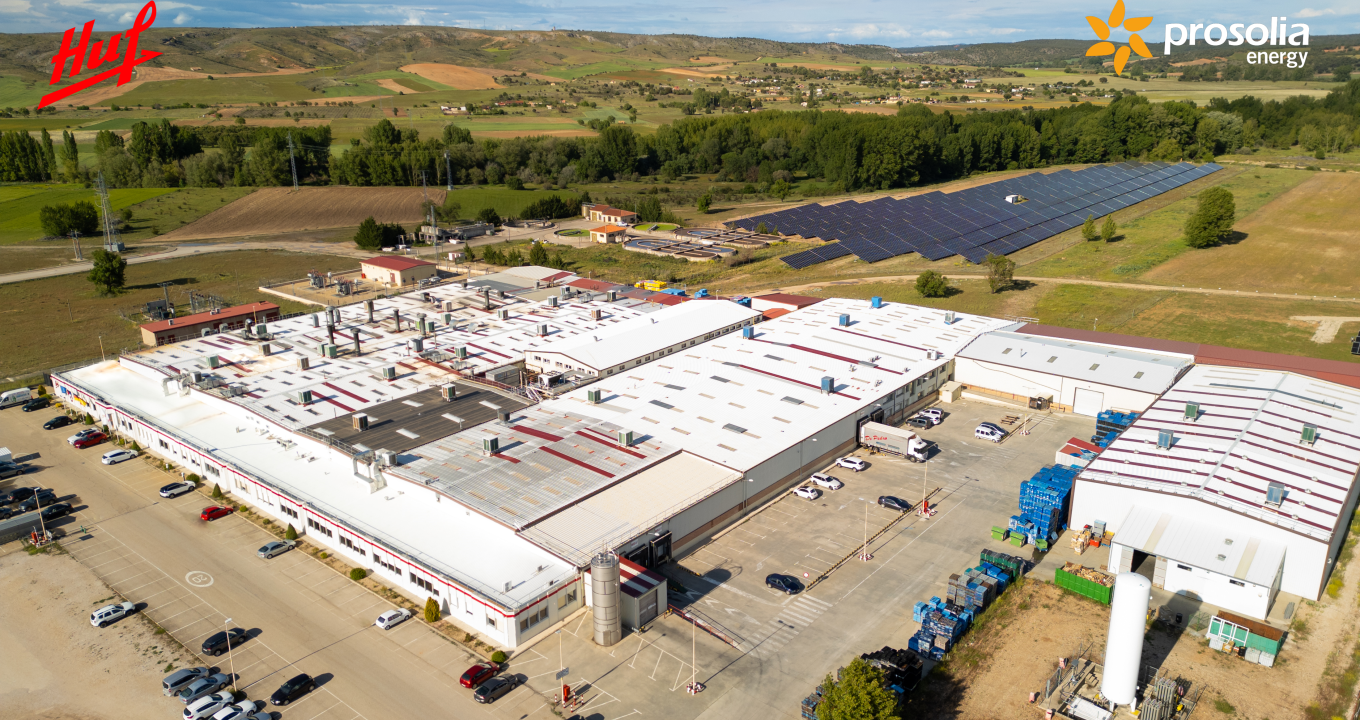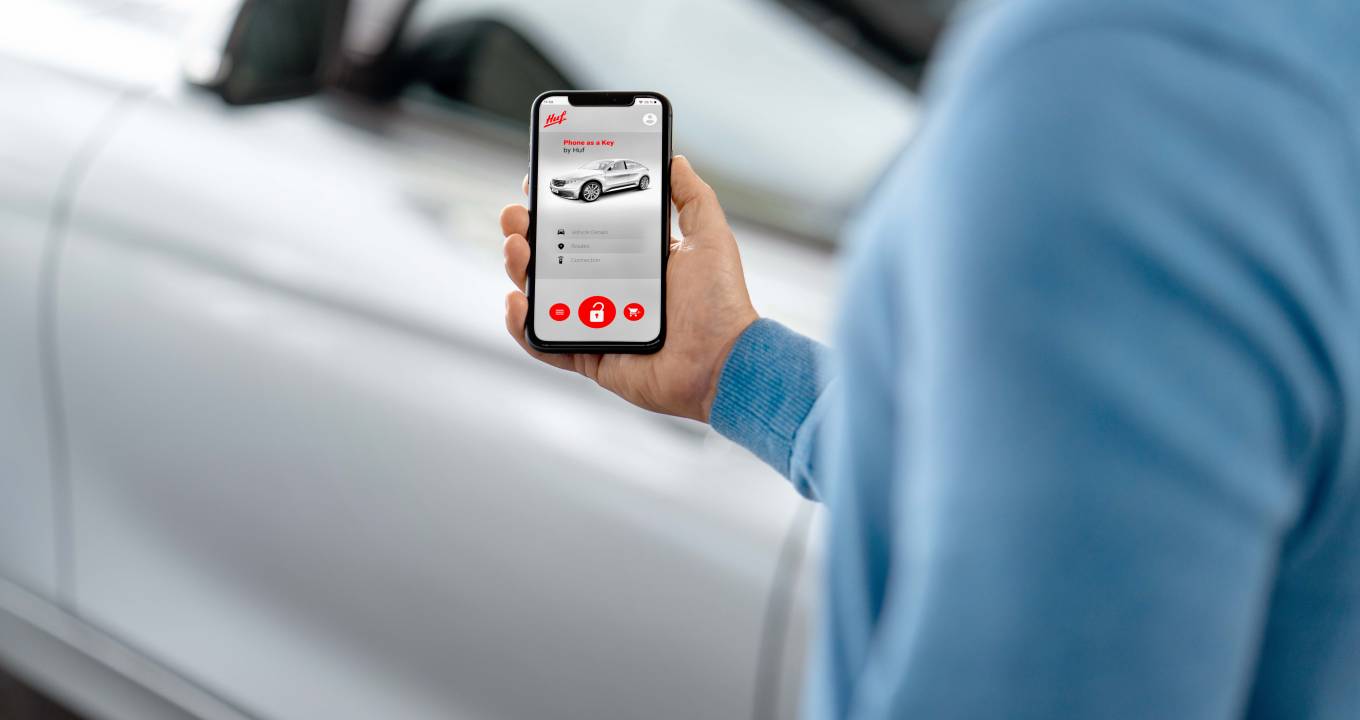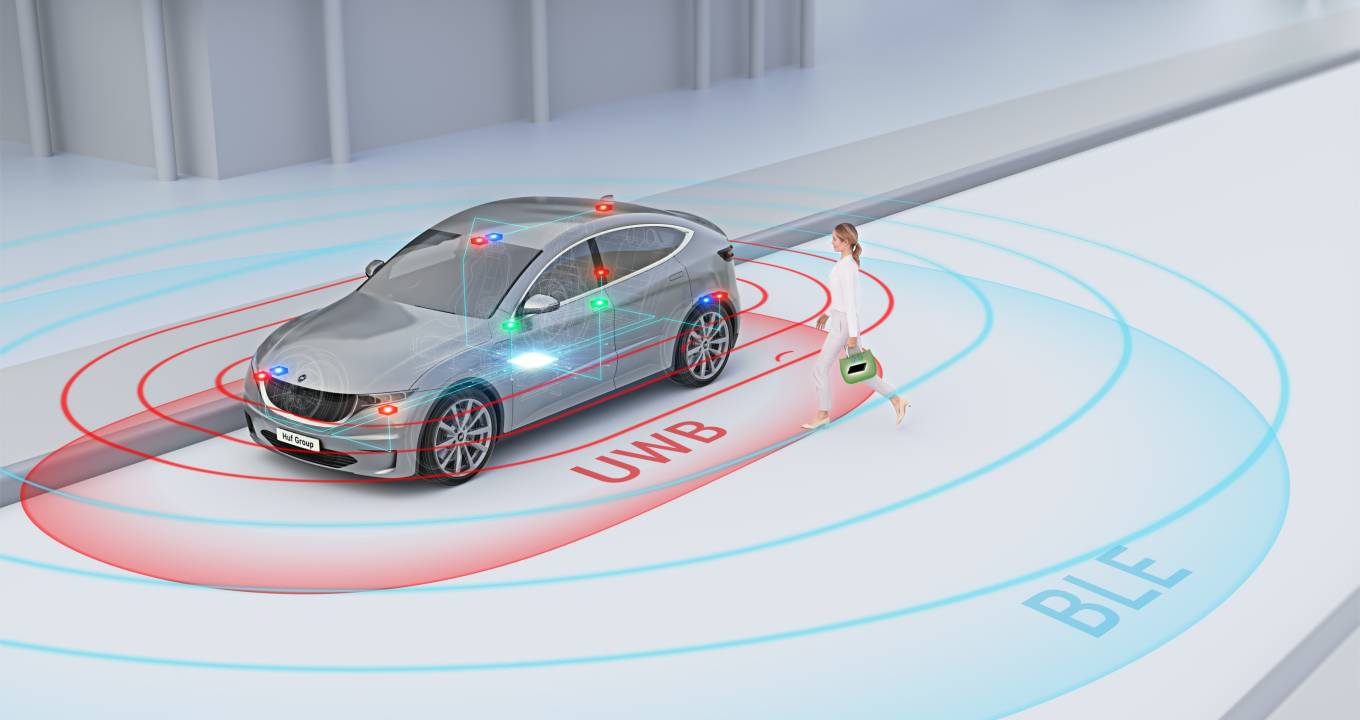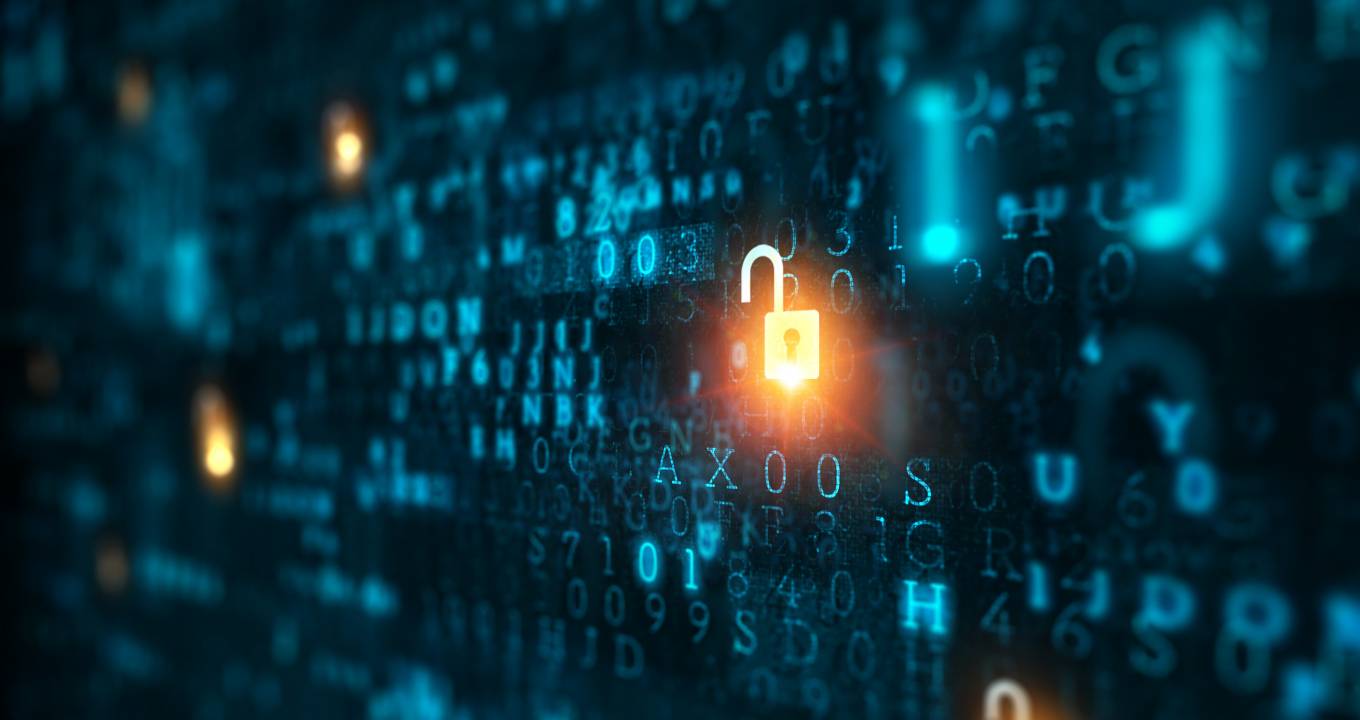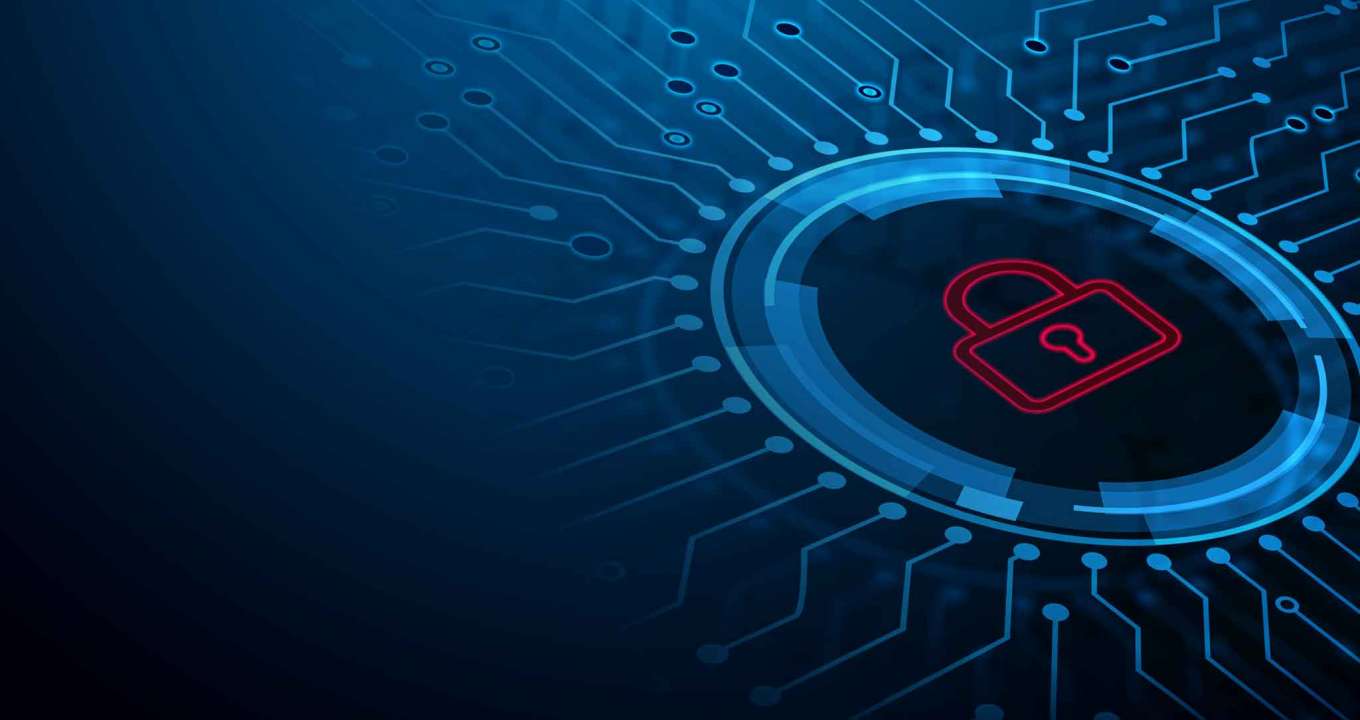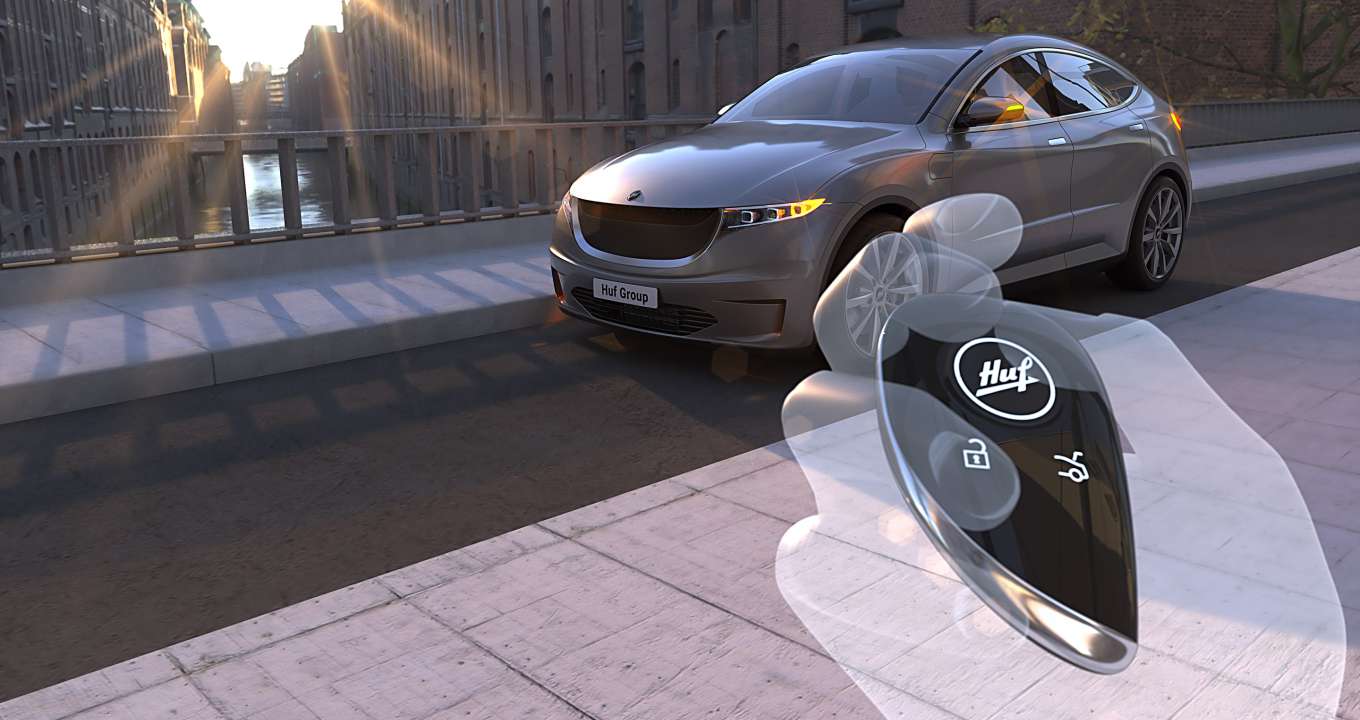For the digital car key Phone as a Key, Huf uses three signal transmission methods that are available in modern smartphones: Bluetooth Low Energy (BLE), Ultra Wideband (UWB) and Near Field Communication (NFC). All three have their respective strengths for secure and comfortable car access. UWB and BLE enable precise localization of the vehicle user when approaching the car and perfectly complement each other. Find out exactly how the technologies work and what advantages they offer in the digital car key Phone as a Key by Huf right here.
Gentle wake-up with BLE - what is Bluetooth Low Energy?
The automotive experience starts when you approach the vehicle. And BLE wireless technology plays a crucial role in this experience, which vehicle owners and automobile manufacturers alike increasingly demand as a comfortable hands-free car access solution.
Bluetooth Low Energy is a modified version of Bluetooth, which is used, for example, to stream media from a smartphone to an audio device. This data transmission system, also called Classic Bluetooth, requires a relatively high amount of energy. As a result, the battery of a smartphone can be drained quite quickly when Classic Bluetooth is activated.
BLE, on the other hand, needs such little energy that built-in Bluetooth low-energy chips with small batteries can operate over an extended period of several years. This is crucial for a continuously reliable communication between many devices on the Internet of Things.
Today, BLE is included in all popular mobile devices. BLE's low-energy mode is ideal for use in car access systems such as Phone as a Key. One of the advantages: The system only needs very small amounts of data to ensure reliable and secure communication between smartphone and vehicle. For pairing BLE-enabled devices, Phone as a Key by Huf uses only algorithms that comply with the BLE SIG standard. This standard, developed by the Bluetooth Special Interest Group (SIG), ensures a high level of security. The SIG is an international interest group of numerous well-known companies dedicated to the further development and distribution of Bluetooth technology.
